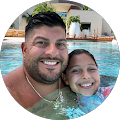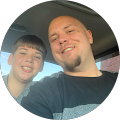

When families look for Owensboro, Kentucky drug and alcohol rehab, they usually want care that’s both easy to get to and truly effective. Substance use continues to affect Daviess County and western Kentucky, so seeking help early can make a significant difference.
Louisville Addiction Center offers outpatient-based recovery options that are within reach for Owensboro residents, providing structure, therapy, and medication support when needed. With flexible levels of care, clients can receive consistent treatment while maintaining connections to loved ones and their daily responsibilities.

Choosing a drug and alcohol rehab near Owensboro, KY, means getting help without uprooting your life. Staying close makes it easier for family members to attend sessions, check in, and participate in aftercare, which can significantly boost long-term recovery.
Across Owensboro and western Kentucky, growing substance use problems have made quick access and steady follow-up essential.
Many people come to structured outpatient care in Louisville so they can receive clinical oversight and evidence-based programming while still living at home. That mix of professional treatment plus nearby support helps recovery feel more practical, sustainable, and less isolating.
Substance abuse remains a significant public health issue in Owensboro, Kentucky, reflecting broader state and national trends. Various substances, including alcohol, opioids, methamphetamine, and prescription medications, are commonly abused, leading to a range of health, social, and economic problems.

Choosing a drug and alcohol rehab near Owensboro, KY, means getting help without uprooting your life. Staying close makes it easier for family members to attend sessions, check in, and participate in aftercare, which can significantly boost long-term recovery.
Across Owensboro and western Kentucky, growing substance use problems have made quick access and steady follow-up essential.
Many people come to structured outpatient care in Louisville so they can receive clinical oversight and evidence-based programming while still living at home. That mix of professional treatment plus nearby support helps recovery feel more practical, sustainable, and less isolating.
As a trusted drug abuse treatment center serving Owensboro, KY, Louisville Addiction Center offers a step-down model of care that adapts to each stage of recovery.
Clients may start in more intensive programming and gradually transition into flexible outpatient care, maintaining continuity with the same clinical team throughout.

Detox is the medically managed clearing of drugs or alcohol from your body; rehab is the longer-term counseling and skill-building that follows. During detox, the brain and nervous system rebound after months or years of chemical suppression, and that rebound can be dangerous.

When cravings keep overruling your best intentions, sheer willpower rarely carries you to the finish line. That’s why drug treatment in Louisville at Louisville Addiction Center pairs accredited clinicians with evidence-based therapies, turning the turmoil of active use into a clear, step-by-step path to lasting sobriety.

Our partial hospitalization program (PHP) is the most common level of care that we have to offer. Our PHP program for substance abuse treatment in Louisville, KY offers intensive care as well as a flexible schedule that will allow our clients to remain plugged into normal life. During our PHP in Louisville, Kentucky, our clients are in our program for 30 days.

Following PHP, clients might need to continue treatment while getting back to everyday life. Our intensive outpatient program (IOP) offers treatment for several hours throughout the week, yet with more flexibility than PHP. That way, clients can begin to use the skills they learn while tending to other obligations, like family, school, or work.

The outpatient program during Louisville rehab is the least restrictive program we offer. Often, clients meet with a therapist or group for about one hour per week. Most clients in our outpatient program have the skills needed to stay healthy outside of treatment. Yet, they still need to refine their recovery skills in the real world with professional support and guidance.

At Louisville Addiction Center, we offer rehab for veterans in Louisville, Kentucky. As a veterans addiction treatment center, we provide TRICARE addiction treatment for veterans. Veterans have unique needs when it comes to substance abuse and mental health disorders. We understand that and offer specialized treatment.
At Louisville Addiction Center, treatment is built around you because recovery isn’t one-size-fits-all. We offer specialized tracks for alcohol and different drug types, so care targets the specific risks, triggers, and challenges you face.
That means evidence-based therapy, practical relapse prevention planning, and individualized goals, rather than a cookie-cutter plan. The result is a treatment path that focuses on real-life skills and steady progress toward lasting recovery.

Physicians prescribe FDA-approved medications such as buprenorphine or naltrexone for opioid misuse and acamprosate for alcohol dependence to curb cravings and stabilize brain chemistry.
Doses are reviewed weekly, adjusted to side-effect profiles, and always paired with counseling.
Medication-Assisted Treatment provides a safer physiological runway, allowing clients to focus on rebuilding routines, relationships, and emotional resilience rather than fighting constant urges.
Unresolved trauma frequently fuels relapse. Louisville Addiction Center’s trauma therapists use Eye Movement Desensitization and Reprocessing to calm the nervous system and reprocess distressing memories, while Brainspotting pinpoints stored somatic pain through guided eye positions. Both methods reduce hyper-arousal and intrusive thoughts, creating mental space for healthier coping strategies and making other therapies more effective.
Cognitive Behavioral Therapy helps clients identify triggers, challenge distorted thinking, and practice alternative behaviors.
Dialectical Behavior Therapy adds modules on emotion regulation and distress tolerance—skills critical during early recovery and high-stress moments.
Together, CBT and DBT provide structured, repeatable tools that clients can apply at work, home, or in social settings to maintain momentum.
Gentle yoga sessions ease muscle tension, steady breathing, and support better sleep. Art therapy turns paint or clay into a simple way to name hard emotions and discuss them in counseling. Both activities supply clear, hands-on tools for managing stress between clinical appointments.
If you’re juggling both substance use and mental health symptoms, Louisville Addiction Center, as a drug abuse treatment center serving Owensboro, KY, treats them together instead of sending you back and forth between programs.
The Dual Diagnosis Program coordinates psychiatric care with addiction treatment so nothing falls through the cracks and you get one clear plan that addresses both issues at once.
The center also offers focused tracks for common mental health concerns: anxiety and depression, trauma and PTSD, bipolar disorder, and OCD. Clinicians use proven therapies (like CBT and trauma-focused approaches) to help stabilize mood, reduce symptoms, and teach practical skills you can use day to day.
Putting mental health and addiction care under the same roof makes recovery more realistic.
When both problems are addressed together, people are more likely to adhere to treatment, manage triggers effectively, and establish the steady routines that support long-term progress.
Strong peer connections are one of the most reliable predictors of lasting recovery.
In Owensboro and Daviess County, programs such as Alcoholics Anonymous (AA), Narcotics Anonymous (NA), Al-Anon, and Celebrate Recovery provide accessible ways to stay engaged after treatment.
Louisville Addiction Center helps clients link to these resources during and after programming.
By weaving structured outpatient care with ongoing community accountability, clients gain a network of support that makes sobriety more sustainable and less isolating.

If you or someone you love is searching for Owensboro, Kentucky, drug and alcohol rehab, Louisville Addiction Center is ready to help. The admissions team offers confidential placement consultations, insurance verification, and telehealth options when appropriate.
Whether you need PHP, IOP, OP, or specialized treatment for substance use and mental health, care is available to meet you where you are.
Call 502-586-4554 today or complete the secure online form to take the first step toward recovery.
Owensboro residents have access to both local resources and structured outpatient care in Louisville. Louisville Addiction Center provides flexible levels of care—including PHP, IOP, and OP—that allow clients to receive evidence-based treatment while staying connected to family and community support.
Staying close to Owensboro makes it easier for family and loved ones to participate in therapy sessions, aftercare, and ongoing check-ins. Being near home can also reduce the isolation that often comes with treatment, making recovery feel more sustainable and practical.
Louisville Addiction Center provides a step-down model of care:
Partial Hospitalization Program (PHP): 5–6 hours of therapy, 5 days a week.
Intensive Outpatient Program (IOP): 3-hour sessions, 3–5 days a week, mornings or evenings.
Outpatient Program (OP): 1–3 hours per week, focusing on relapse prevention and aftercare planning.
PHP offers intensive treatment without requiring overnight stays. Clients spend most of the day in structured therapy sessions, then return home each evening. This is ideal for people transitioning out of detox or residential rehab who still need daily accountability.
IOP provides consistent support through group therapy, individual counseling, and life skills development. Sessions are scheduled around work, school, or family obligations, making it a practical option for those balancing recovery with daily responsibilities.
Outpatient care in Owensboro includes weekly therapy sessions (1–3 hours), relapse prevention strategies, and connections to sober living, AA/NA meetings, and community support programs. Telehealth check-ins may also be available.
Yes. Alcohol addiction treatment focuses on reducing cravings, addressing triggers, and developing coping strategies. Treatment includes a mix of one-on-one counseling, group therapy, and skill-building to support long-term sobriety.
Louisville Addiction Center offers specialized treatment programs for:
Opioids (including fentanyl and heroin)
Cocaine
Prescription medications
Benzodiazepines (Xanax, Valium, Klonopin, etc.)
Medication-Assisted Treatment (MAT) may be integrated when clinically appropriate.
Yes. Dual diagnosis treatment addresses both substance use and mental health disorders simultaneously. Common co-occurring issues treated include depression, anxiety, PTSD, OCD, and bipolar disorder. Coordinated psychiatric and addiction care ensures nothing falls through the cracks.
You or your loved ones can start by contacting Louisville Addiction Center at Admissions Hotline 502-586-3967 for a confidential consultation. The admissions team can verify insurance, discuss program options, and provide guidance on whether PHP, IOP, or OP is the right fit. Telehealth and same-day assessments may also be available.
Get Family Support Now
We understand addiction affects the whole family. Our comprehensive family program helps rebuild trust and restore relationships.
Weekly Family Therapy Sessions
Educational Workshops
Support Groups
Communication Skills Training
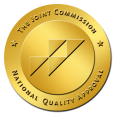

Centers for Disease Control and Prevention. (2025, June 9). Heroin. Overdose Prevention. U.S. Department of Health & Human Services. Retrieved August 22, 2025, from https://www.cdc.gov/overdose-prevention/about/heroin.html
Centers for Disease Control and Prevention. (2025). Understanding the opioid overdose epidemic. Overdose Prevention. U.S. Department of Health & Human Services. Retrieved August 22, 2025, from https://www.cdc.gov/overdose-prevention/about/understanding-the-opioid-overdose-epidemic.html
Centers for Disease Control and Prevention, National Center for Health Statistics. (2025, March 17). FastStats – Drug overdoses. Retrieved August 22, 2025, from https://www.cdc.gov/nchs/fastats/drug-overdoses.htm
Kentucky Office of Drug Control Policy & Kentucky Injury Prevention and Research Center. (2025). 2024 Kentucky drug overdose fatality report. Commonwealth of Kentucky. Retrieved August 22, 2025, from https://odcp.ky.gov/Reports/2024%20Drug%20Overdose%20Fatality%20Report.pdf
Centers for Disease Control and Prevention. (2025, August 7). SUDORS dashboard: Fatal drug overdose data. U.S. Department of Health & Human Services. Retrieved August 22, 2025, from https://www.cdc.gov/overdose-prevention/data-research/facts-stats/sudors-dashboard-fatal-overdose-data.html
Kentucky Justice & Public Safety Cabinet. (2023). Gov. Beshear: Overdose deaths decline for second-straight year. Commonwealth of Kentucky. Retrieved August 22, 2025, from https://justice.ky.gov/News/Pages/24overdosefatalityreport.aspx

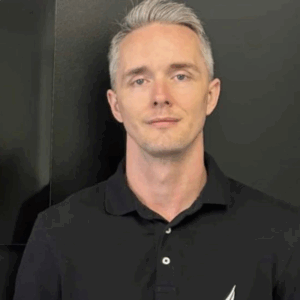

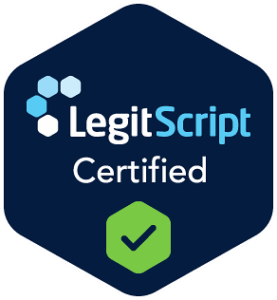
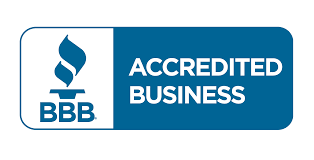


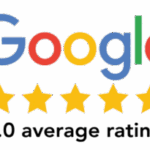

Centers for Disease Control and Prevention. (2025, June 9). Heroin. Overdose Prevention. U.S. Department of Health & Human Services. Retrieved August 22, 2025, from https://www.cdc.gov/overdose-prevention/about/heroin.html
Centers for Disease Control and Prevention. (2025). Understanding the opioid overdose epidemic. Overdose Prevention. U.S. Department of Health & Human Services. Retrieved August 22, 2025, from https://www.cdc.gov/overdose-prevention/about/understanding-the-opioid-overdose-epidemic.html
Centers for Disease Control and Prevention, National Center for Health Statistics. (2025, March 17). FastStats – Drug overdoses. Retrieved August 22, 2025, from https://www.cdc.gov/nchs/fastats/drug-overdoses.htm
Kentucky Office of Drug Control Policy & Kentucky Injury Prevention and Research Center. (2025). 2024 Kentucky drug overdose fatality report. Commonwealth of Kentucky. Retrieved August 22, 2025, from https://odcp.ky.gov/Reports/2024%20Drug%20Overdose%20Fatality%20Report.pdf
Centers for Disease Control and Prevention. (2025, August 7). SUDORS dashboard: Fatal drug overdose data. U.S. Department of Health & Human Services. Retrieved August 22, 2025, from https://www.cdc.gov/overdose-prevention/data-research/facts-stats/sudors-dashboard-fatal-overdose-data.html
Kentucky Justice & Public Safety Cabinet. (2023). Gov. Beshear: Overdose deaths decline for second-straight year. Commonwealth of Kentucky. Retrieved August 22, 2025, from https://justice.ky.gov/News/Pages/24overdosefatalityreport.aspx









Hear directly from those who have walked the path to recovery. Our patients’ stories highlight the compassionate care, effective programs, and life-changing support they’ve experienced. Let their journeys inspire you as you take your first steps toward healing.
Louisville Addiction Center is helping people in Kentucky overcome addiction and mental health challenges.






